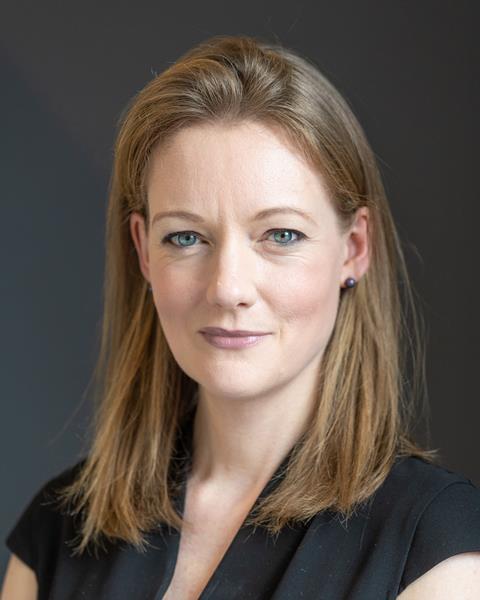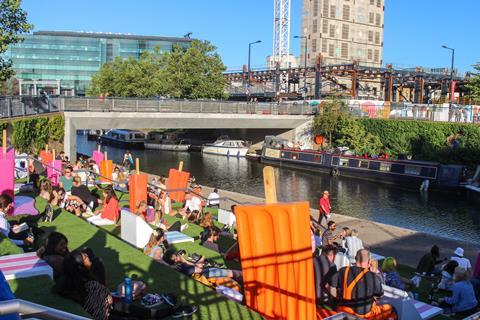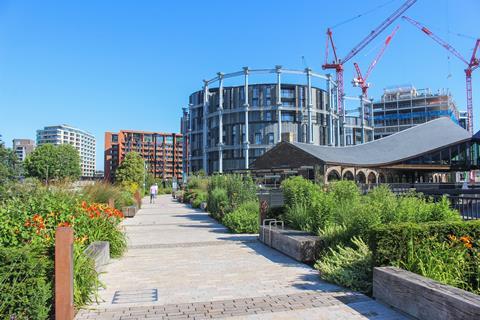The buzz of the city is what will attract office workers back, writes Helen Causer
After a year of working almost exclusively from home, I’ve realised it’s not just the office and my colleagues I’m missing - it’s much more than that. I miss the commute, a rare time to myself in the twilight between work and family life. I miss the buzz of the city, the diversity, the wealth of food options, none of which I’ve had a role in cooking. I miss happening upon brilliant art and culture, the unexpected experiences and passive enrichment I get every day when I come into the office.

Of course, we know that the workplace is about so much more than the office itself - the workplace for me, and millions of others, is London - an extraordinary city where global businesses base themselves to attract the very best global talent. It’s a midpoint between east and west, and somewhere, which for hundreds of years, has been a place to exchange not just goods but ideas.
As we emerge from the pandemic, we need to acknowledge and protect the very essence of the city. It is not the corporate office buildings which have attracted people and trade for centuries, but the diversity, creativity and culture that flows between them. The spaces beyond skyscrapers, and landscrapers, have never been more important.
The places and spaces which make up our city have a crucial role to play. They‚Äôre the backdrop to these collaborations and the exchanges of ideas. As a landlord and curator of a destination, this of course means ensuring we provide a wealth of great places to eat, drink and shop, open spaces in which to exercise and to use for contemplation and relaxation, and space to support cultural institutions ‚Äď theatres and public art ‚Äď that are open and inclusive for all to enjoy.
The lesson here is that workspace providers need to consider their strategy through the lens of placemaking
This same philosophy of creating a space to optimise collaboration can also be applied to the four walls of the office. The workplace of the future will not be about sitting at your desk ‚Äď the day of the desk farm is done ‚Äď but a place that brings teams together and encourages creativity.
After over a year coping with the loneliness of lockdown, offices will be fluid, activity-led, people focused spaces that enhance employee wellbeing and mental health. They will facilitate the sharing of ideas and encourage people to come together.
The offices of the future will be inclusive places of learning and development, places that reflect the diversity of the people within them and inspire and enrich their days.

King‚Äôs Cross has always aimed to be a place for people to live, work and play. Since its inception, we‚Äôve had a vision of King‚Äôs Cross being a place for people to flourish, and with a unique mix of destination restaurants, shops, bars, open spaces, and cultural institutions ‚Äď the spaces between the buildings are as important as the buildings themselves. We are continually learning and covid has certainly been a catalyst for us to continue evolving, encouraging creativity and bringing businesses together to share ideas.

The lesson here is that workspace providers need to consider their strategy through the lens of placemaking. Placemaking has traditionally focused on drawing in people who haven’t previously discovered an area. But with PwC revealing that the number of people living in the capital could fall by more than 300,000 this year due in large part to the rise of working from home during the pandemic, we need to adjust our thinking in order to retain talent.
The key is for landlords to adapt their placemaking strategies to put more of an emphasis on attracting office workers back to re-discover the open spaces, events, and amenities on their office doorstep.
The pandemic has emphasised that property is all about people and the relationship between owners and occupiers is therefore more important than ever. Customer insight is key to understanding the behaviours and concerns of the people who use our office buildings and the spaces between them, in order to draw them back.
The journey of evolution for the workplace has only just begun, but it is clear that people will be craving experiences and places to enjoy themselves beyond the physical office building, and by offering this, we can attract workers back to commercial zones.
Helen Causer is Argent’s office and investment lead at King’s Cross



























No comments yet